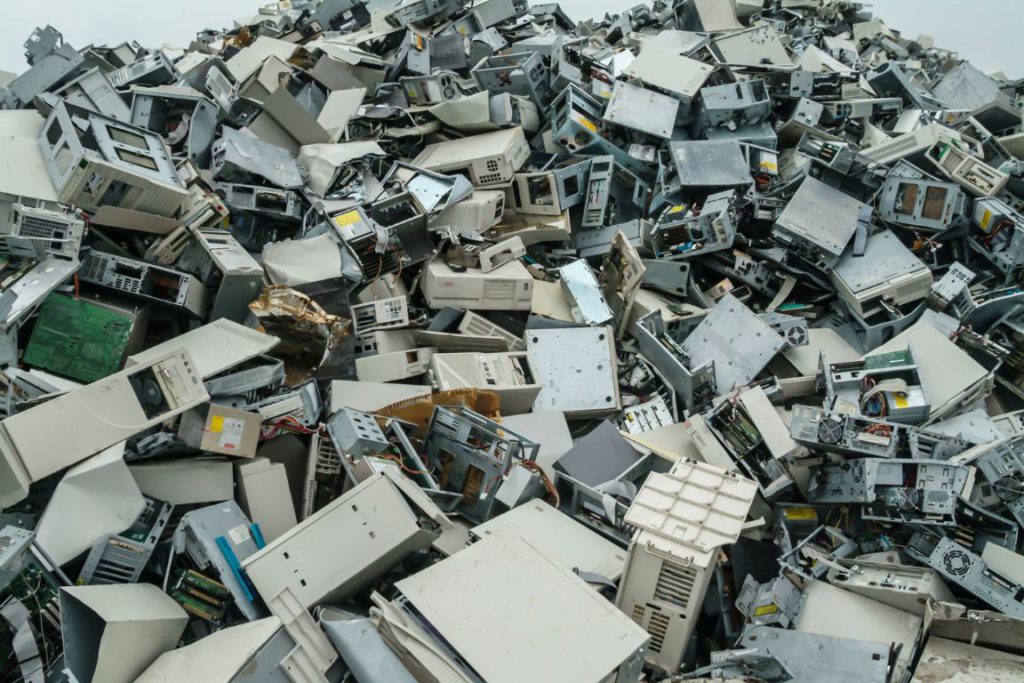Modern technology places a premium on virtual space, but the consequences are anything but virtual. As we look beyond the world of bits and bytes and back to our real world of atoms and molecules, electronic waste, or e-waste, has become a significant environmental concern. The United Nations reported that worldwide e-waste generation reached a record 53.6 million metric tons in 2019. As technology constantly evolves, small businesses face the challenge of managing e-waste responsibly. Today, we’ll explore the reasons why managing electronic waste is important for small businesses and how they can do their part to create a sustainable future.
Environmental Impact
Electronic waste contains hazardous materials—such as lead, cadmium, and mercury—which can cause environmental damage and health problems when we dispose of them improperly. E-waste can contaminate soil and water sources, leading to serious health consequences for humans and wildlife. Therefore, the proper disposal and recycling of electronic waste can minimize these risks and protect the environment.
Regulatory Compliance
Small businesses must comply with federal and state regulations that oversee the disposal of electronic waste. Some states require businesses to recycle electronic waste rather than consign it to landfills, where, as we mentioned, heavy metals can leach into groundwater. These regulations are not mere suggestions—noncompliance can result in significant fines and penalties. By managing e-waste responsibly, small businesses can avoid these legal complications and adhere to environmentally responsible practices.
Data Security
Think about every important contract you’ve signed and every presentation you’ve given on company equipment. You may not want that to fall into the wrong hands. Maintaining company confidentiality is a big reason why managing electronic waste is important. Most electronic devices hold valuable and sensitive information, including trade secrets and customer data. When a business doesn’t correctly dispose of electronic waste, it can expose this information, leading to data breaches and other security risks. Take the right steps to ensure proper e-waste disposal to protect sensitive information and maintain data security.
Maintaining a Good Reputation
Environmental, social, and corporate governance is more than just a passing trend. Sustainability and environmental responsibility matter to consumers and clients. By showing a commitment to sustainability and responsible waste management, small businesses can improve their reputation and attract environmentally conscious customers. Dealing with e-waste correctly is a major factor in demonstrating this commitment.
Reducing Your Expenses
Let’s conclude with what really matters: dollars and cents. When small businesses manage their electronic waste responsibly, they potentially reduce costs associated with disposing of electronics through improper channels, including legal fees and regulatory fines. Moreover, businesses can refurbish or resell some electronic devices, generating additional revenue. By partnering with responsible electronic waste recycling services, small businesses can help create a more sustainable future while avoiding potential legal and financial complications—with benefits on the balance sheet, too.











